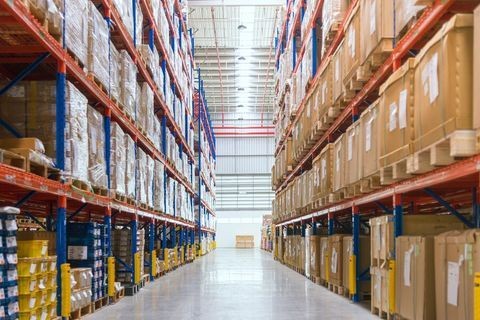COVID-19: The Latin America Perspective (Special Edition) – Venezuela
Client Alert | 7 min read | 05.04.20
The pandemic is affecting the entire world, particularly countries that were already in crisis, such as Venezuela, which are in a more vulnerable position to combat the consequences of the coronavirus. In collaboration with PAE-Legal, this alert provides an overview of the measures adopted by Nicolás Maduro in Venezuela. The pandemic—together with the previously existing shortages of gasoline, food and supplies—is significantly affecting commerce and threatens to completely shut down the country’s economy.
State of Alarm Decree
On March 13, Nicolás Maduro issued a State of Alarm Decree, ordering the general suspension of activities in Venezuela. The Decree was recently extended and is expected to remain effective until at least May 12.
The State of Alarm Decree ordered the vast majority of commercial activities in Venezuela to stop, except certain “essential” activities, including:
- Telecommunications;
- Public services, such as water, gas and electricity, among others;
- Transportation and the sale of fuel and lubricants;
- Distribution of health and pharmacy products and services;
- Transfer of securities;
- Activities related to ports and customs system;
- Production, distribution and commercialization of food products; and
- Activities aimed at ensuring operations related to the “National Integrated Agri-Food System.”
While the State of Alarm Decree theoretically guarantees the transportation and supply of fuels, Venezuela currently faces a severe shortage of gasoline. Undoubtedly, this is amplifying the effects of the pandemic, constraining all essential business activities and threatening to completely paralyze the country.
Nicolás Maduro has issued two additional decrees: (i) Decree No. 4168, suspending payments and enforcement of bank loans for 180 days; and (ii) Decree No. 4169, suspending rent payments for primary residences and closed commercial establishments that do not provide essential activities.
As part of the implementation of these alarm decrees, Nicolás Maduro has also ordered the closing of the borders and the suspension of international flights, including for Venezuelan citizens outside the country.
Additionally, administrative and judicial proceedings have been suspended, both before the Public Administration and courts. At the same time, notaries and registry offices (real estate, civil or mercantile) are not providing services to the public, increasing the lack of legal protections available for businesses.
Under the Organic Law of States of Exception (the State of Alarm Decree is considered a type of “state of exception” under the Venezuelan Constitution), the effects of all ordinary legislation are deemed suspended to the extent that they are not compatible with the exceptional rules issued for the purpose of restoring the status quo. The scope of implementation of this law, however, is unclear, which increases legal insecurity among the private sector and further slows down the country’s economic development.
Force Majeure under Venezuelan Law
The pandemic—combined with the shortage crisis—has deepened the economic and humanitarian crisis in Venezuela. As a result, companies have been forced, among other efforts, to review their commercial agreements to mitigate the impact of the crisis. Under the Civil Code of Venezuela, the general rule is that obligations must be performed exactly as agreed upon by the parties, and that in the event of breach, the non-complying party owes damages to the other party (Article 1264). The exception to this rule arises when there is an external cause not attributable to the parties, which legally excuses or may excuse, the non-compliance of obligations (Articles 1271 and 1272). Force majeure is a type of “external cause not attributable to the parties.”
In principle, COVID-19 and the measures adopted by Nicolás Maduro may be deemed as an external cause non-attributable to the parties pursuant to Article 1271. This concept—also known as act of the prince—specifically regulates, exceptionally, these particular situations that are caused by the pandemic. In addition to the pandemic itself, a court may also determine that the gasoline shortage, for example, should be considered a non-imputable external cause resulting in legal non-performance, on a case-by-case basis.
Importantly, the grounds for exemption from liability only extend or suspend compliance of obligations. In other words, they do not completely relieve a party of its performance, unless those obligations and their timely compliance are so essential that it causes the contract to be terminated. It will ultimately depend on the specific case and will be subject to a contextual analysis. Therefore, it is important that companies document each situation to the best of their ability, creating a record not only of the pandemic’s own existence, but also of the specific event(s) preventing or affecting performance of the contractual obligations.
In the case of tax obligations, the Organic Tax Code of Venezuela establishes that while force majeure or fortuitous event (a/k/a “caso fortuito” or “Acts of God”) do not excuse compliance with tax obligations, they do relieve payment of penalties or interest in each case (Article 85.4). However, although most countries in the region have adopted special rules extending, suspending or making suitable tax burdens on companies, the Nicolás Maduro regime has not issued any measure in this regard, ignoring the extraordinary circumstances that companies are subject to as a result of the pandemic and the decrees imposed by the regime.
Other Measures Affecting Business
At risk of a total shut down of the Venezuelan productive sector, the Nicolás Maduro regime recently announced new price controls and the temporary occupation of food distributors and establishments, similar to previous onerous measures that have significantly impacted businesses in the past. These measures may well trigger another wave of claims by foreign investors. According to UNCTAD, Venezuela is one of the countries with the most investment claims against it in the world, after Argentina and Spain.
OFAC’s Guidance Regarding Sanctions and Humanitarian Trade Involving Venezuela in light of COVID-19
Importantly, despite the pandemic, the United States has not relaxed any of its Venezuela-related sanctions obligations. Instead, on April 16, the U.S. Treasury Department’s Office of Foreign Assets Control (OFAC) published a fact sheet consolidating and summarizing the relevant authorizations, exemptions, and guidance that OFAC already maintained to support the provision of humanitarian assistance across all of its sanctions programs, including Venezuela, and how these might be applied to COVID-19 pandemic-related humanitarian assistance. Some of these authorizations generally include the following types of activity (though each authorization is subject to certain conditions):
- Certain transactions involving the Government of Venezuela, certain other sanctioned banks, or certain types of financing that are incident to export and re-export of certain agricultural commodities, medicine, medical devices, and replacement parts, components, and software updates for medical devices;
- Provision of nonscheduled emergency medical services, and the provision of other medicals services involving the Government of Venezuela;
- Official activities of certain international organizations such as the United Nations and the International Committee of the Red Cross;
- Transactions involving the Government of Venezuela necessary to provide air ambulance and related medical services for individuals in Venezuela; and
- Transactions by NGOs involving the Government of Venezuela in support of humanitarian projects, democracy building, education, or non-commercial development projects directly benefitting the Venezuelan people.
OFAC also stated that it would “prioritize” specific license applications on a case-by-case basis that related to “humanitarian support for the Venezuelan people.”
In parallel, on April 20, OFAC acknowledged that it would consider any compliance program-related staffing or other challenges that result from COVID-19 as “a factor” in its determination, implicitly acknowledging that numerous other factors would be used to determine if an enforcement action was appropriate.
The net result is that OFAC sanctions remain relevant to companies seeking to engage with Venezuela, even for those seeking to provide COVID-19 related response and support. To the extent the pandemic creates Venezuela-sanctions related compliance challenges for companies, they are advised to seek guidance from counsel or the agency as early as possible to mitigate the risk of potential future enforcement.
To learn more about our previous Crowell & Moring Alert on OFAC’s Fact Sheet Regarding Humanitarian Trade Involving Sanctioned Countries and COVID-19 Guidance, click here.
This alert was prepared in collaboration with Juan José Figueroa and José Antonio Elíaz, partners of PAE-Legal. PAE-Legal has a network of strategic alliances at the national and international level, and offers legal advisory services inside and outside Venezuela. For more information about PAE-Legal, contact José Antonio Elíaz at: jae@pae-legal.com, Ave. Río Caura, Torre Humboldt Business Center, 6th floor, offices 06-05 and 06-06 Urb. Prados del Este, Municipality Baruta. Caracas 1080, Venezuela. +58 212 976-0296.
Crowell & Moring has assisted clients and worked with local counsel across Latin America and the Caribbean, and is closely monitoring how governments in the area are responding to COVID-19 and how commercial relationships are impacted by the global pandemic.
To learn more on previous Crowell & Moring Alerts on the impact of COVID-19 in other Latin American jurisdictions regarding force majeure, click here and here.
Insights
Client Alert | 2 min read | 04.21.25
Agencies to Curtail Unique, Customized Acquisitions in Favor of Commercial Products and Services
On April 16, 2025, the White House issued an Executive Order (“EO”), “Ensuring Commercial, Cost-Effective Solutions in Federal Contracts,” requiring agencies to meet their needs with commercially available products and services to the maximum extent practicable. The EO reiterates and builds upon the requirements set forth in the Federal Acquisition Streamlining Act of 1994 (“FASA”), which similarly encourages the use of commercial acquisition procedures. Specifically, the EO institutes a required review procedure for certain open acquisition actions and establishes an oversight procedure to be implemented for all acquisitions hereafter.
Client Alert | 4 min read | 04.21.25
ClassPass’ Petition for Rehearing Will Tell the Future of Sign-In Wrap Agreements on the Internet
Client Alert | 5 min read | 04.21.25
DOJ Secures First Criminal Wage-Fixing Conviction in Home Health Care Staffing Case
Client Alert | 6 min read | 04.18.25









